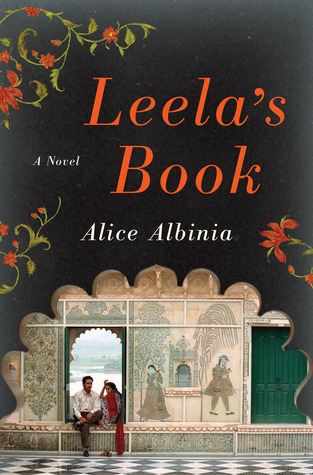[So I have returned to BP and will be posting here occasionally (though my personal blog is going to be my focus). Let’s just let the drama of the past week go.
I am cross-posting a book review I did of Alice Albinia’s novel “Leela’s Book”– a modern reworking of The Mahabharata. This review was originally published on The South Asian Idea in April 2012. ]
According to Hindu mythology, The Mahabharata was dictated by the sage Vyasa to Lord Ganesha, the elephant-headed god. However, some scholars believe that the sections of the epic that deal with Ganesh’s scripting are later interpolations. Vyasa himself appears as a character in the epic. Vyasa’s brother Vichitravirya died without issue, so Vyasa’s mother asked him to impregnate his brother’s wives, the sisters Ambika and Ambalika. Ambika was the first to come to Vyasa’s bed, but out of fear and shyness, she closed her eyes. Vyasa cursed her and told her that her child would be born blind. The next night, it was Ambalika’s turn. She had been warned to remain calm, but her face turned pale due to fear. Again Vyasa cursed her and told her that her son would be be anemic and not be fit enough to rule the kingdom. These two brothers would end up being the ancestors of the two warring clans, the Kauravas and the Pandavas.
It is this mythological background that Alice Albinia draws upon in her novel Leela’s Book (originally published in January 2012). The story revolves around Ved Vyasa Chaturvedi, an eminent professor of Sanskrit and his relationships with two sisters, Meera and Leela. Twenty-two years before the novel begins, Vyasa had seduced Meera, who died after bearing him a pair of twins, a boy and a girl. After falling out with her sister regarding her relationship with Vyasa, Leela had gone into exile in New York, making a vow never to return to India. Now, two decades later, Leela is forced to return because her husband’s niece is marrying Vyasa’s son. Although the family thinks that they have arranged the wedding for their own selfish purposes, events are really being directed by Lord Ganesha, who is trying to save Leela, his beloved heroine, from Vyasa.
Many sections of Albinia’s novel are actually narrated by Ganesh. The god wants to correct the belief that Vyasa was the author of the Mahabharata. As he tells the reader, “I freely admit that my sworn enemy is Vyasa, pedestrian composer of India’s too-long epic, a poem called the Mahabharata, every word of which I wrote” (Albinia 26). Ganesh also wants to reveal Vyasa’s true character. He says:
Now, in the Mahabharata, Vyasa portrays himself as a holy sage, with matted hair and an otherworldly air, an expert teacher, the counsellor of kings, the wise old grandfather of his characters. He builds up a fabulous portrait: comforting yet aloof, clever yet alluring. I have only one problem with this benign vision: it is totally untrue. In these pages of mine, I will correct the misapprehension under which mortals have languished for so long. I will show how Vyasa disrespected ladies, failed to dissuade his descendants from mutual carnage, gave students of literature headaches with his prose (29).
Ganesh also confesses that he added his own original characters into Vyasa’s story. Two of these were Leela and Meera. Ganesh tells the reader: “Without mentioning a word of it to anyone, I simply dropped [Leela] into Vyasa’s tale, at one of the few places in the epic where a character didn’t have a name – Vyasa’s own bed, as it happened – as the amorous slave-girl he impregnated by mistake (after his late brother’s widows had had enough of him)” (31). Leela and Meera have been together through eight avatars, and the present story (their ninth avatar) is Ganesh’s last chance to get things right and save Leela from Vyasa. Continue reading Leela’s Book: A Review
